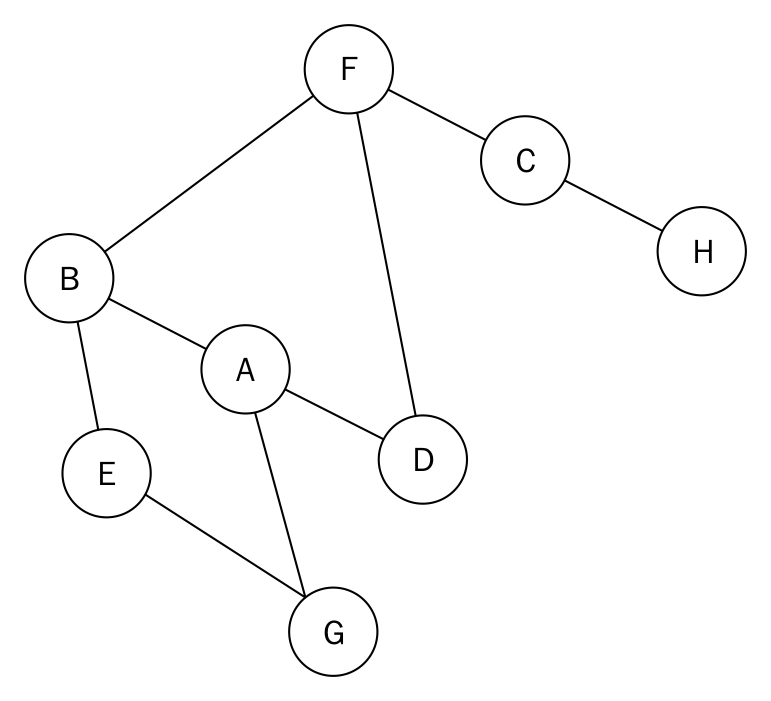Graph traversal
Since graphs don't necessarily have an ordered structure, traversing a graph can be more involving. Traversal normally involves keeping track of which nodes or vertices have already been visited and which ones have not. A common strategy is to follow a path until a dead end is reached, then walking back up until there is a point where there is an alternative path. We can also iteratively move from one node to another in order to traverse the full graph or part of it. In the next section, we will discuss breadth and depth-first search algorithms for graph traversal.
Breadth-first search
The breadth-first search algorithm starts at a node, chooses that node or vertex as its root node, and visits the neighboring nodes, after which it explores neighbors on the next level of the graph.
Consider the following diagram as a graph:

The diagram is an example of an undirected graph. We continue to use this type of graph to help make explanation easy without being too verbose.
The adjacency...












































































